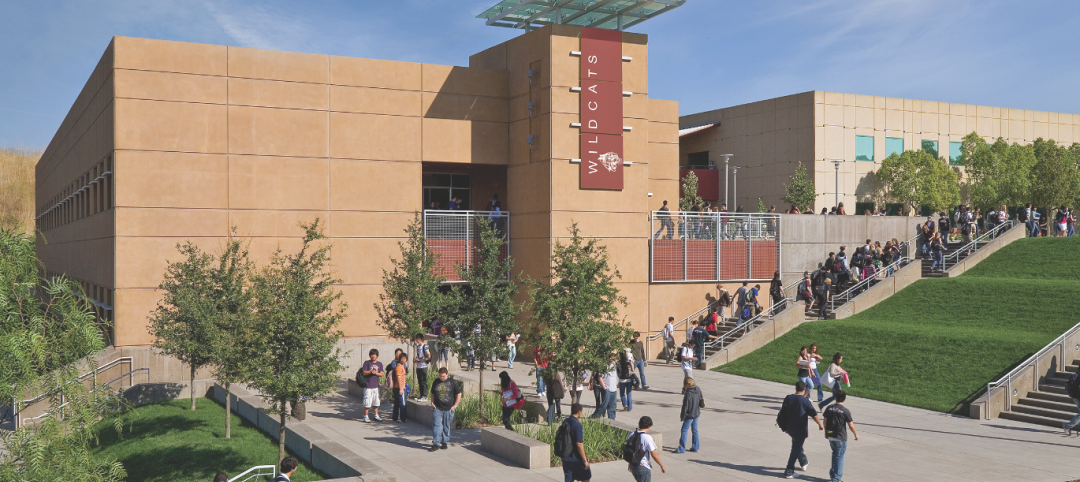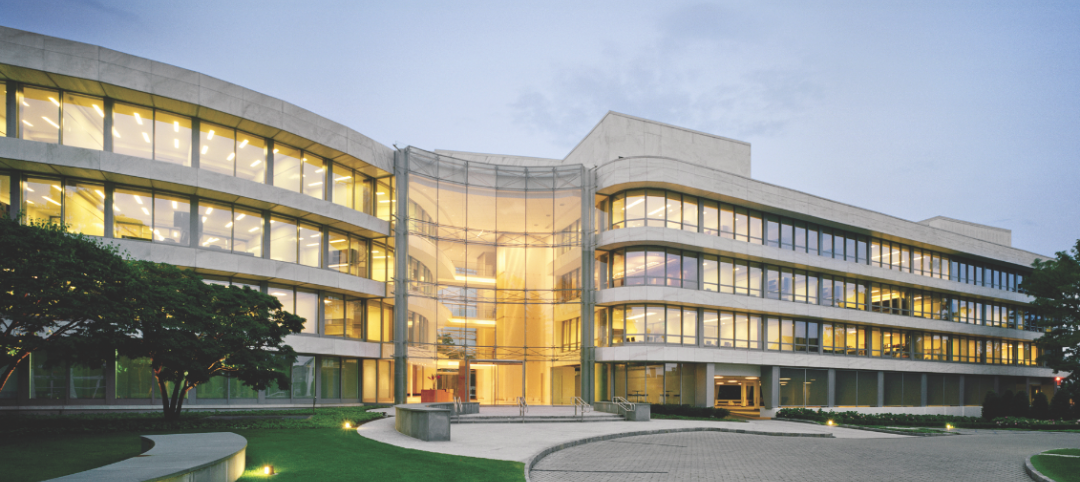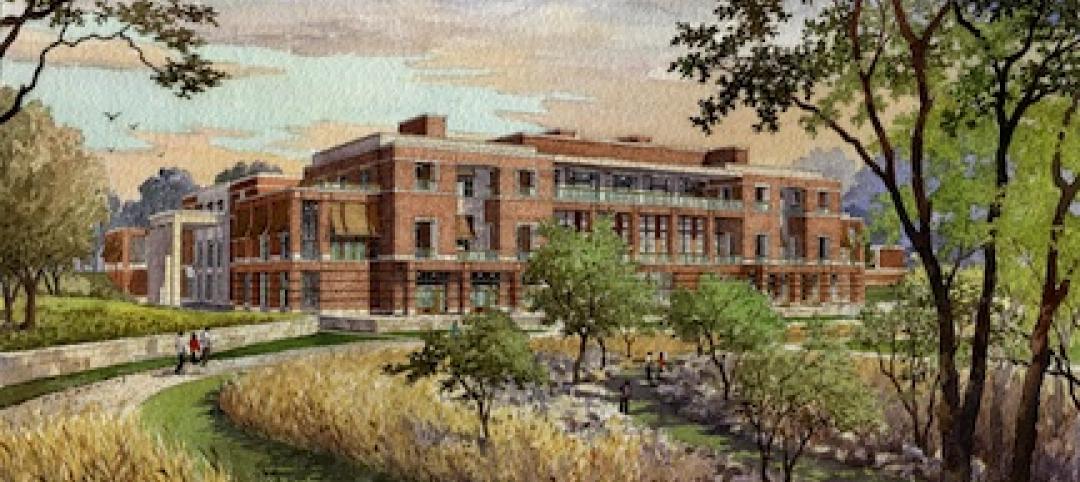The American Institute of Architects (AIA) and the American Institute of Architecture Students (AIAS) committed to timely passage of the National Design Services Act (NDSA), which will give architecture students the same relief from crushing student loan debt, which is already granted young lawyers, doctors and others – in return for community service.
The bipartisan legislation, H.R. 4205, was introduced by Rep. Ed Perlmutter (D-CO) and co-sponsored by Rep. Greg Meeks (D-NY), Rep. Gwen Moore (D-WI) and Rep. Dennis Ross (R-FL).
“Millions of young people aspire to help their communities build a better future – but a lack of opportunity and the crushing cost of education hold them back,” said AIA CEO Robert Ivy, FAIA. “As a result, the design and construction industry faces a severe shortage of talent at exactly the moment America needs to rebuild for the future.
“We commend Congressman Perlmutter for recognizing this issue, for introducing the NDSA and for enlisting his colleagues on both sides of the aisle to work for its ultimate passage,” Ivy said. “I promise that they will have the full resources of the AIA as well as the architecture student community behind them when more than 600 AIA members convene in Washington, D.C. next week as part of the AIA’s annual grassroots conference.”
"The National Design Services Act will help promote sustainable economic development and jobs by ensuring aspiring architects are able to gain valuable experience while giving back to their communities designing public projects such as schools, health clinics, housing facilities and libraries,” said Rep. Perlmutter. “In return, the bill will alleviate some of the barriers new students face as they pursue their dreams in architecture."
“There is no shortage of enthusiasm in our membership for passing this bill,” said Joshua Caulfield, Chief Executive Officer of AIAS. “And we intend to leverage that enthusiasm to the hilt as we go forward and call on our members of Congress.”
Student debt is one of the most critical issues facing the economy – not to mention the next generation of design professionals. Roughly 40 million Americans owe $1.2 trillion in student-loan debt, an amount that surpasses every other type of household debt except mortgage debt. Architecture student graduates come out of school with approximately $40,000 in student loan debt, ranking architecture as one of the disciplines with the highest loan balances in the country.
The NDSA eases this burden by providing loan assistance to architecture students and recent graduates who contribute their design services to underserved areas. The bill would authorize the Department of Housing and Urban Development (HUD) to create a program allowing architecture students to work with Community Design Centers in exchange for assistance with their student loans.
As a result, communities will receive a broad range of architecture services that may not have otherwise been available, and architecture graduates will be induced to stay in the profession.
At a recent meeting of AIAS Milwaukee-Wisconsin where AIA National staff discussed the proposal, architecture students immediately began organizing a phone bank for students to call their members of Congress to urge them to support the bill.
One young architect, Evan Litvin of Philadelphia, has launched an online petition that enlists the support of architects nationwide for speedy passage of the NDSA. The link to that petition can be found here.
Related Stories
| Dec 7, 2010
Product of the Week: Petersen Aluminum’s column covers used in IBM’S new offices
IBM’s new offices at Dulles Station West in Herndon, Va., utilized Petersen’s PAC-1000 F Flush Series column covers. The columns are within the office’s Mobility Area, which is designed for a mobile workforce looking for quick in-and-out work space. The majority of workspaces in the office are unassigned and intended to be used on a temporary basis.
| Dec 6, 2010
Honeywell survey
Rising energy costs and a tough economic climate have forced the nation’s school districts to defer facility maintenance and delay construction projects, but they have also encouraged districts to pursue green initiatives, according to Honeywell’s second annual “School Energy and Environment Survey.”
| Dec 2, 2010
GKV Architects wins best guest room design award for Park Hyatt Istanbul
Gerner Kronick + Valcarcel, Architects, PC won the prestigious Gold Key Award for Excellence in Hospitality Design for best guest room, Park Hyatt Macka Palas, Istanbul, Turkey. Park Hyatt Maçka Palace marries historic and exotic elements with modern and luxurious, creating a unique space perpetuating Istanbul’s current culture. In addition to the façade restoration, GKV Architects designed 85 guestrooms, five penthouse suites, an ultra-hip rooftop bar, and a first-of-its-kind for Istanbul – a steakhouse, for the luxury hotel.
| Dec 2, 2010
U.S Energy Secretary Chu announces $21 Million to improve energy use in commercial buildings
U.S. Energy Secretary Steven Chu announced that 24 projects are receiving a total of $21 million in technical assistance to dramatically reduce the energy used in their commercial buildings. This initiative will connect commercial building owners and operators with multidisciplinary teams including researchers at DOE's National Laboratories and private sector building experts. The teams will design, construct, measure, and test low-energy building plans, and will help accelerate the deployment of cost-effective energy-saving measures in commercial buildings across the United States.
| Nov 29, 2010
Data Centers: Keeping Energy, Security in Check
Power consumption for data centers doubled from 2000 and 2006, and it is anticipated to double again by 2011, making these mission-critical facilities the nation’s largest commercial user of electric power. Major technology companies, notably Hewlett-Packard, Cisco Systems, and International Business Machines, are investing heavily in new data centers. HP, which acquired technology services provider EDS in 2008, announced in June that it would be closing many of its older data centers and would be building new, more highly optimized centers around the world.
| Nov 29, 2010
New Design Concepts for Elementary and Secondary Schools
Hard hit by the economy, new construction in the K-12 sector has slowed considerably over the past year. Yet innovation has continued, along with renovations and expansions. Today, Building Teams are showing a keener focus on sustainable design, as well as ways to improve indoor environmental quality (IEQ), daylighting, and low-maintenance finishes such as flooring.
| Nov 29, 2010
Renovating for Sustainability
Motivated by the prospect of increased property values, reduced utility bills, and an interest in jumping on the sustainability bandwagon, a noted upturn in green building upgrades is helping designers and real estate developers stay busy while waiting for the economy to recover. In fact, many of the larger property management outfits have set up teams to undertake projects seeking LEED for Existing Buildings: Operations & Maintenance (LEED-EBOM, also referred to as LEED-EB), a certification by the U.S. Green Building Council.
| Nov 23, 2010
The George W. Bush Presidential Center, which will house the former president’s library
The George W. Bush Presidential Center, which will house the former president’s library and museum, plus the Bush Institute, is aiming for LEED Platinum. The 226,565-sf center, located at Southern Methodist University, in Dallas, was designed by architect Robert A.M. Stern and landscape architect Michael Van Valkenburgh.
| Nov 23, 2010
Honeywell's School Energy and Environment Survey: 68% of districts delayed or eliminated improvements because of economy
Results of Honeywell's second annual “School Energy and Environment Survey” reveal that almost 90% of school leaders see a direct link between the quality and performance of school facilities, and student achievement. However, districts face several obstacles when it comes to keeping their buildings up to date and well maintained. For example, 68% of school districts have either delayed or eliminated building improvements in response to the economic downturn.













